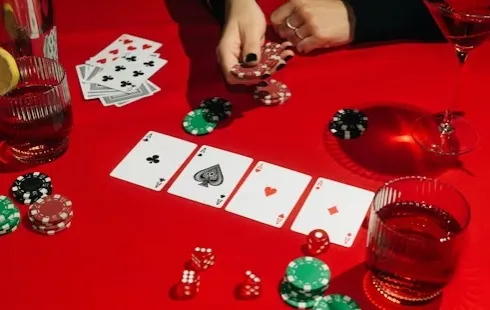
Poker Events That Dominate the International Gaming Scene
Section: Arts
Ask any Munich football fan about current Republic of Ireland manager Giovanni Trappatoni's time at the helm of Bayern München in the 1990s, and they'll point you to a much viewed You Tube video of a famous press conference in which an overwrought Trappatoni gives vent to his frustrations in language which is colourful, emotive, and has a distant and apparently accidental resemblance to German. This would draw a smile of recognition from Irish football fans, who have become familiar with the classic ingredients of the Trappatoni press conference: garbled phrases in Italian syntax, comedy reaction shots from players and officials sharing the podium, and interpreters on the verge of a nervous breakdown. Wherever he has travelled in his long career in football management, "Trap", as he is known in Dublin, has become celebrated for the violence he does to local grammar as much as for the misery his teams inflict on opponents. "No say the cat is in the sack" has the same cult status in Ireland that "Ich habe Fertig" and "schwach wie eine Flasche leer" has here.
Ask any opposing manager, however, and they'll tell you that there is no lack of fluency in the football his teams play. Before taking the reigns at the Republic of Ireland in 2008, Trappatoni had long established himself as one of the most successful managers in Europe. The statistics are not open to misunderstanding. Making his reputation with huge success at Juventus and Internazionale, he is one of only four coaches to have won league titles in four different countries, one of only two to have won all major European club titles, and alone in having won all UEFA club competitions and also the World Club title. The Irish are hoping against hope that Euro 2012 might add a further glint of polish to this golden career as it enters its autumn years.
Despite their optimistically entitled anthem, "You'll Never Beat the Irish", few fans in green are expecting to see captain Robbie Keane host the trophy aloft on 1st July. Considering the teams they share Group C with (the small matter of Spain, Italy and Croatia), merely scraping through to the next round as runners up would send the Irish into raptures of delight, and would represent one of the finest achievements in the national team's history. This is only the second time that the Republic has qualified for the European Championship. The first was in Germany in 1988, when Ireland famously beat England in Stuttgart (a game subsequently immortalised in folk songs and stage plays) and launched an era of unprecedented success under the much loved Jack Charlton which led to a World Cup quarter final in 1990 and the glorious victory over Italy in Giants Stadium in the USA 1994 World Cup.
The pickings have been thin for the Irish since those days, however. The last major tournament they qualified for was the World Cup in 2002, mostly remembered for captain Roy Keane flying home in a rage after clashing with manager Mick McCarthy before a ball was kicked in anger. Trappatoni has restored belief, however. His first campaign ended in the heartache of almost qualification for the last World Cup, when dreams were dashed by the hand of Thierry Henry as the seconds ticked down towards a penalty shootout in the decisive play-off game against France in Paris. Ireland recovered from that disaster, however, and enters Sunday's opening game against Croatia with a team known for its discipline and focus, if not for the elegance of its football (few neutral fans of the beautiful game are likely to warm to the Irish style of play). What they lack in technical skills, Trappatoni's Irish make up for with a combination of Italian defensive organisation and Irish stubbornness. The current unbeaten run of fourteen games testifies to that. Like the great Irish sides of the past, this team is comfortable with the status of underdog, and the fans will be hoping that an old tradition will be renewed: the Irish against-the-odds victory over more lauded opponents.
The player to watch: James McClean, the 23 year old Sunderland winger from Northern Ireland who controversially switched allegiance to the Republic earlier this year. One of the most exciting Irish players to emerge in years, many are hoping that McClean will make an impact on the big stage over the next few weeks.

Section: Arts

Section: News
Section: Arts

Section: Business

Section: Arts

Section: Arts

Section: Business

Section: Business

Section: Arts

Section: Health
Health Insurance in Germany is compulsory and sometimes complicated, not to mention expensive. As an expat, you are required to navigate this landscape within weeks of arriving, so check our FAQ on PKV. For our guide on resources and access to agents who can give you a competitive quote, try our PKV Cost comparison tool.
Germany is famous for its medical expertise and extensive number of hospitals and clinics. See this comprehensive directory of hospitals and clinics across the country, complete with links to their websites, addresses, contact info, and specializations/services.
Join us for an enchanting evening dedicated to the theme of love, featuring the vibrant sounds of flamenco, rumba, and romantic ballads. Ricardo Volkert & Ensemble will present 'Amor! Amor! Amor!', a celebration of love through passionate guitar melodies, virtuosic cello and bandoneon...



No comments yet. Be the first to comment!